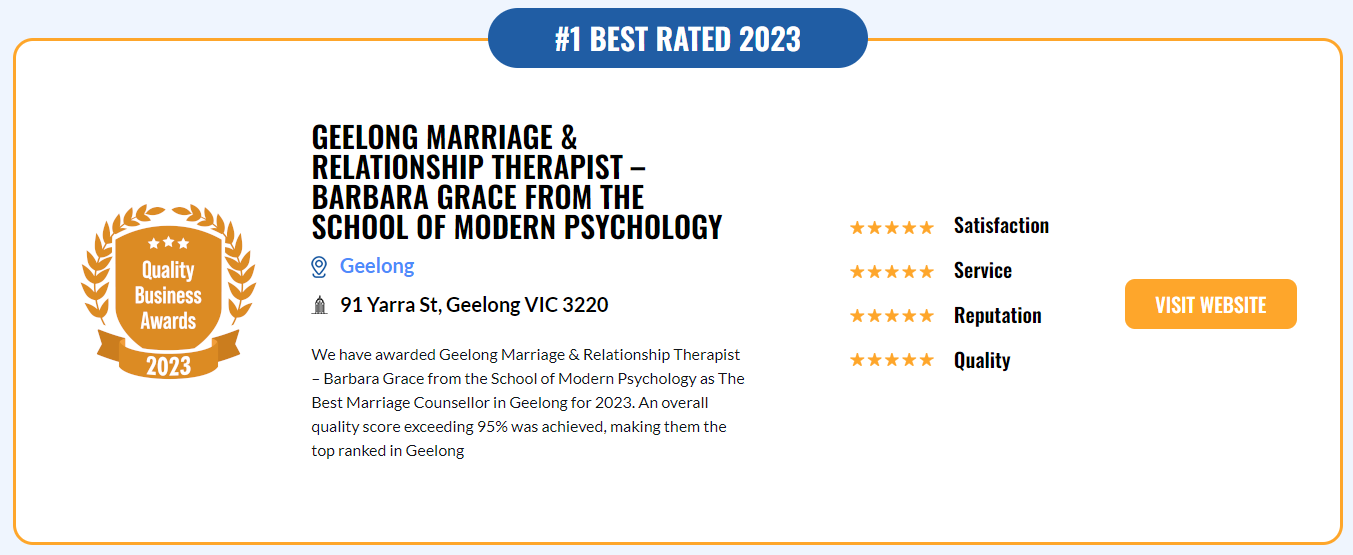People only see what they are prepared to see. Ralph Waldo Emerson
Conflicts a couple experience can be complex and multifaceted, often stemming from a combination of internal and external factors.
Delving into the intricacies of these conflicts needs an understanding of both partners' perspectives and the dynamics at play. Let's explore some potential underlying issues, both internal and external, that may contribute to a couple's struggles:
Internal Conflicts:
Communication Styles:
Issue: Differences in communication styles can lead to misunderstandings and frustration.
Internal Conflict: One partner might feel unheard or dismissed, while the other may struggle with expressing themselves effectively.
Unmet Emotional Needs:
Issue: Unfulfilled emotional needs can create a sense of emptiness or dissatisfaction.
Internal Conflict: One partner may grapple with feelings of loneliness or abandonment, while the other may struggle with guilt or inadequacy.
Personal Insecurities:
Issue: Personal insecurities can manifest as jealousy or mistrust.
Internal Conflict: Both partners may be dealing with their own insecurities, leading to a cycle of defensiveness and vulnerability.
Different Values and Goals:
Issue: Divergent values or goals can lead to conflicts over priorities and life directions.
Internal Conflict: One partner may feel torn between personal aspirations and the relationship, while the other may wrestle with feelings of being stifled or not understood.
Past Trauma:
Issue: Unresolved traumas from the past can impact the present relationship.
Internal Conflict: Individuals may struggle with trust issues, fear of vulnerability, or recurring emotional wounds from past experiences.
External Conflicts:
External Stressors:
Issue: External pressures such as work, finances, or family expectations can strain the relationship.
Internal Conflict: Partners may internalize stress differently, leading to varying levels of emotional availability and coping mechanisms.
Social Expectations:
Issue: Societal norms and expectations can influence the couple's dynamics.
Internal Conflict: One partner may grapple with societal expectations, while the other may struggle with feelings of inadequacy or the desire for independence.
Lack of Support Systems:
Issue: Insufficient support from friends or family can strain the relationship.
Internal Conflict: Partners may feel isolated or unsupported, leading to a sense of dependency on each other and potential resentment.
External Influences on Identity:
Issue: Changes in individual identities due to external factors can impact the relationship dynamics.
Internal Conflict: Partners may struggle with their evolving sense of self, leading to a need for understanding and acceptance from the other.
Can Conflict Be Helpful In A Relationship?
Conflict within a relationship is often viewed negatively due to the emotional turbulence and potential for damage to the connection between partners. However, when managed constructively, can have several positive aspects.
1. Fostering Growth and Understanding:
Negative Perception: Conflict is often associated with pain and discomfort.
Positive Shift: Constructive conflict encourages personal and relational growth by forcing individuals to confront differences, leading to a deeper understanding of themselves and their partners. This is where a couple appreciate each other’s differences and learn that ‘differentiation’ can be a healthy aspect of a relationship that’s growing - not stagnating.
2. Enhancing Communication Skills:
Negative Perception: Conflict is seen as a breakdown in communication.
Positive Shift: Conflict can improve communication skills if partners take time to understand their personal needs (around safety/security, playfulness/fun/variety/pesonal expression, their need to feel prioritised/appreciated and loved/cherished.
3. Resolving Unmet Needs:
Negative Perception: Conflict often highlights unmet emotional/intimacy needs.
Positive Shift: Learning how to listen and hear a partner’s emotional needs without feeling judged/put down can re-build closeness and connection.
4. Building Resilience:
Negative Perception: Conflict can be viewed as weakening the relationship.
Positive Shift: Successfully navigating conflicts builds resilience within the relationship. Couples learn to weather storms together, strengthening their bond and trust in each other's ability to handle challenges.
5. Expressing unvoiced fears:
Negative Perception: Conflict may be associated with vulnerability.
Positive Shift: Conflict provides a platform for emotional openness. It encourages partners to share their feelings, fears, and desires, fostering a more emotionally intimate connection.
6. Preventing Resentment:
Negative Perception: Conflict can lead to resentment.
Positive Shift: Constructive conflict resolution prevents the accumulation of unresolved issues and resentment. By addressing concerns promptly, couples can maintain a healthier emotional climate within the relationship.
7. Catalyzing Positive Change:
Negative Perception: Conflict is often seen as disruptive.
Positive Shift: Conflict can be a catalyst for positive change. It prompts couples to reassess their dynamics, make necessary adjustments, and evolve together. Through conflict, couples can build a relationship that aligns more closely with their evolving needs and aspirations.
8. Encouraging Individual Reflection:
Negative Perception: Conflict can lead to defensiveness.
Positive Shift: Conflict can encourage individual reflection. Partners can use conflicts as opportunities to understand their own triggers, insecurities, and communication patterns. This self-awareness contributes to personal growth and enhances the overall quality of the relationship.
9. Finding Your Voice:
Negative Perception: It’s better to sweep conflict under the carpet and keep the peace.
Positive Shift:
Learning how to communicate clearly is a skill many couples need to develop. Just because conflict is squashed, doesn’t mean it’s resolved. Finding your voice, without feeling guilty, is part of a couple’s work to work through issues rather than ignoring them.
In cultivating a positive approach to conflict, couples can shift their mindset from viewing it as a threat to seeing it as an opportunity for growth, understanding, and intimacy. Developing effective conflict resolution skills, such as active listening, empathy, and compromise, is crucial for harnessing the positive potential of conflicts within a relationship. Ultimately, it's the ability to learn and grow together through challenges that can transform conflict into a constructive force within a partnership.
Understanding Conflict with the ‘Ladder of Inference” (developed by Chris Argyris)
Imagine conflict as a winding staircase, where each step takes you further away from resolution. One useful framework to understand this process is the "Ladder of Inference." It's like having a map to navigate the twists and turns of disagreements.
Picture this:
You and your partner start at the bottom of the ladder. The ground floor represents raw data - what you both observe and experience. Now, as you ascend the ladder, each rung represents a mental step. Here's where things get interesting:
Selective Observation: You choose specific elements of the raw data that stand out to you. These become the building blocks for your personal perspective.
Interpretation: You start making sense of those observations. What do they mean to you? Your personal experiences and beliefs sneak in, coloring your interpretation.
Assumptions: Now, assumptions join the party. You take your interpretations and add assumptions - things you believe to be true without concrete evidence.
Conclusions: Building upon assumptions, you draw conclusions. These are your decisions about the situation based on your interpretations and assumptions.
Beliefs: Conclusions then solidify into beliefs. These are like your personal truths, shaping how you see the world.
Actions: Finally, your beliefs drive your actions. You behave based on what you've climbed up to believe about the situation.
Here's the kicker:
Conflict often escalates because both partners are on different rungs of the ladder. You might be on the "Beliefs" step, while your partner is still stuck on "Interpretation." It's like trying to communicate in different languages!
So, how do you climb back down together?
Share Your Journey: Explain your climb up the ladder. Share what raw data you observed and how you interpreted it. This opens a window into your perspective.
Ask Questions: Encourage your partner to share their climb. Ask about their observations, interpretations, and assumptions. Be genuinely curious.
Seek Common Ground: Find the shared rungs. What raw data do you both agree on? Identifying common ground helps create a bridge between your perspectives.
Challenge Assumptions: Examine assumptions together. Are they valid? Are they based on facts or personal biases? This step can be a game-changer.
Co-create Solutions: Once you've climbed back down together, you're in a better position to find resolutions. Build solutions based on a shared understanding of the situation.
Remember, conflict is a shared journey. By acknowledging and understanding the steps on the ladder, you empower yourselves to de-escalate conflicts, fostering a deeper connection and shared resolutions.
Let's make this practical and dive into a common source of conflict - coming home late to a messy house and an empty fridge. Meet Alex and Taylor, a couple navigating the intricacies of their busy lives:
Alex's Perspective (Higher Rung):
Alex works long hours at a demanding job, often facing unexpected challenges and tight deadlines. One evening, Alex arrives home later than usual, feeling exhausted and hungry. The first thing noticed is the messy living room and the empty fridge. The tiredness amplifies frustration, and Alex's mind begins climbing the ladder.
Observation: The living room is cluttered, and the fridge is empty.
Interpretation: "I've had a tough day, and I come home to this chaos. It feels like no one cares about creating a comfortable space for me."
Assumption: "Taylor should have known I would be tired and hungry. They could have cleaned up or at least thought about dinner."
Conclusion: "Taylor doesn't appreciate the effort I put into my work. They don't prioritize our home environment or my well-being."
Belief: "I work hard, and it seems like Taylor takes that for granted. Maybe they don't understand the importance of a clean and welcoming home."
Action: Alex expresses frustration and disappointment, maybe even withdrawing emotionally, expecting Taylor to understand without explicitly communicating the feelings.
Taylor's Perspective (Lower Rung):
Taylor, on the other hand, has been managing a hectic schedule as well, juggling work, personal commitments, and unforeseen challenges. When Alex arrives home, Taylor is engrossed in completing a last-minute project, completely unaware of the time or the state of the house. Let's see the climb up the ladder:
Observation: Taylor is focused on work, unaware of the time or the messy surroundings.
Interpretation: "I have this important project, and I need to finish it. The time got away from me, and I didn't realize how late it was."
Assumption: "Alex understands that my job can be demanding. They've been supportive in the past, so they should understand this situation too."
Conclusion: "It's not intentional. Alex knows I'm dedicated to my work, and I assumed they'd understand the occasional late evening."
Belief: "Alex values my commitment to my job. They might be momentarily upset, but they know it's part of the deal."
Action: Taylor continues working, assuming that Alex will appreciate the dedication to their job and understand the situation.
Resolution:
In this example, Alex and Taylor are on different rungs of the ladder. While Alex is up there feeling unappreciated and neglected, Taylor is down below, assuming that their commitment to work is understood. The conflict deepens because they haven't shared their respective climbs.
To resolve this, they need to communicate openly. Alex can express their need for a clean, welcoming home after a tough day. Simultaneously, Taylor can share their perspective, acknowledging the unintended oversight and emphasizing the importance of mutual understanding. Through this dialogue, they can find common ground, perhaps establishing a system to manage responsibilities during busy periods or setting expectations for communication about late nights.
Understanding each other's climbs up the ladder is key to resolving conflicts and building a more resilient and communicative relationship.
Try out this ‘ladder’ for yourselves. Think back to a recent disagreement and map it using the insights gained here.

















